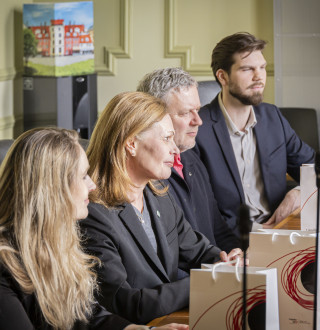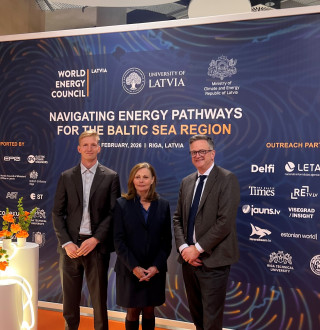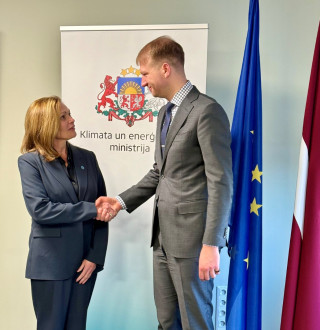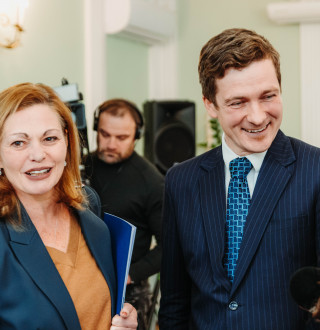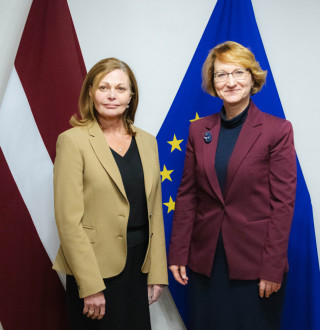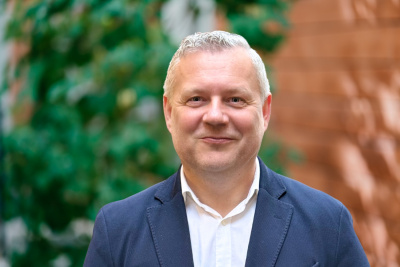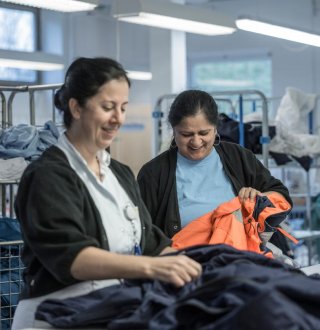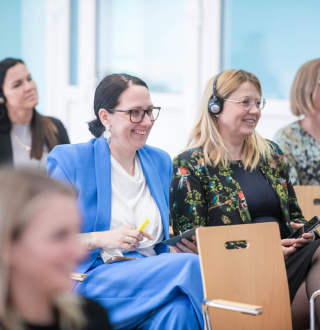On 5 September, a Nordic-Baltic online webinar “Textile circularity and Extended Producer Responsibility (EPR)” took place as part of the project “Paving the way for strategic cooperation on textile circularity in the Nordic-Baltic region”, financed by the Nordic Council of Ministers Office in Latvia.
In total, 190 participants were registered, with 130 participants attending the event. Experts discussed the current state, challenges and opportunities in textile circularity, focusing on textile waste collection, reuse, recycling and the practical implementation of EPR policies. The aim was to consolidate existing knowledge, raise critical questions and facilitate cross-border knowledge exchange at the international level.
The Nordic and Baltic countries are closely interconnected across several stages of textile circularity – from cross-border transport to reuse. Data shared by experts show a sharp increase in exports of used textiles from the Nordics to the Baltics, where most materials are manually sorted and prepared for reuse. This indicates that the region effectively functions as one ecosystem, with its future greatly dependent on joint decisions rather than isolated national approaches.
However, the region also faces shared challenges: differing national requirements, unevenly developed infrastructure and inconsistent collection systems, resulting in processes that are not always effective or transparent. Participants agreed that the quality of collected textiles is often low, which undermines reuse potential and weakens investment incentives.
EPR as a turning point
The seminar examined EPR both as a policy tool and as a system capable of reshaping textile circularity. Latvia is currently the only country in the region to have introduced EPR for textiles (since July 2024). Participants noted that EPR can catalyse new business models, data generation, and investment—provided systems are aligned across countries and clear, comparable criteria are adopted. Speakers repeatedly stressed that EPR design for textiles should not be copied from packaging or other waste streams; textiles are made from specific materials and require tailored processing.
The webinar extensively examined Extended Producer Responsibility (EPR) as both a policy tool and a system capable of reshaping textile circularity. Latvia is the only country in the region that has introduced an EPR scheme for textiles (since July 2024). Participants highlighted that EPR can become a catalyst for new business models, data generation and investment growth, if systems are aligned across countries and clear, comparable criteria are adopted. Textile waste management still follows traditional waste-handling logic (similar to plastics or packaging), overlooking changing consumer expectations and the potential for value recovery. Yet textiles differ fundamentally from standard waste streams, requiring approaches that go beyond conventional waste management models
The webinar also highlighted several cooperation initiatives, including the Nordic-Baltic Textile Transition Group (NBTT), which will be officially launched in November 2025 in Greenland to promote knowledge exchange, policy harmonisation and cross-border solutions. Regional working groups that already coordinate EPR at the ministerial level were also recognised as essential.
The project “Paving the way for strategic cooperation on textile circularity in the Nordic-Baltic region” is a continuation of the 2018–2020 initiative “Towards a Nordic and Baltic Textile Circularity System”, which highlighted the interconnected textile ecosystem and the growing textile circularity challenges in the region and aimed to increase collection, reuse and recycling, as well as support effective policy development.
Partners — Looptex (Lithuania), represented by Viktorija Nausede; Aalborg University (Denmark) and Revaluate (Estonia), represented by Kerli Kant Hvass; and Green Liberty (Latvia), represented by Dace Akule. The project is implemented in cooperation with the Nordic Council of Ministers’ Offices in Lithuania and Estonia.
A detailed summary of the webinar is available in English attached to this article, together with presentations of speakers.
- WEBINAR SUMMARY
- Presentation by Aiste Rakauskiene_Lithuania
- Presentation by Betina Simonsen_Denmark
- Presentation by Dace Akule_Helicopter view_Latvia
- Presentation by Janine Roling_Netherlands
- Presentation by Jens Wraa Mage_Norway
- Presentation by Kerli Kant Hvass_Denmark and Estonia
- Presentation by Mairita Lūse_Latvia
- Presentation by Piret Otsason_Estonia
- Presentation by Traci Kinden_Netherlands
